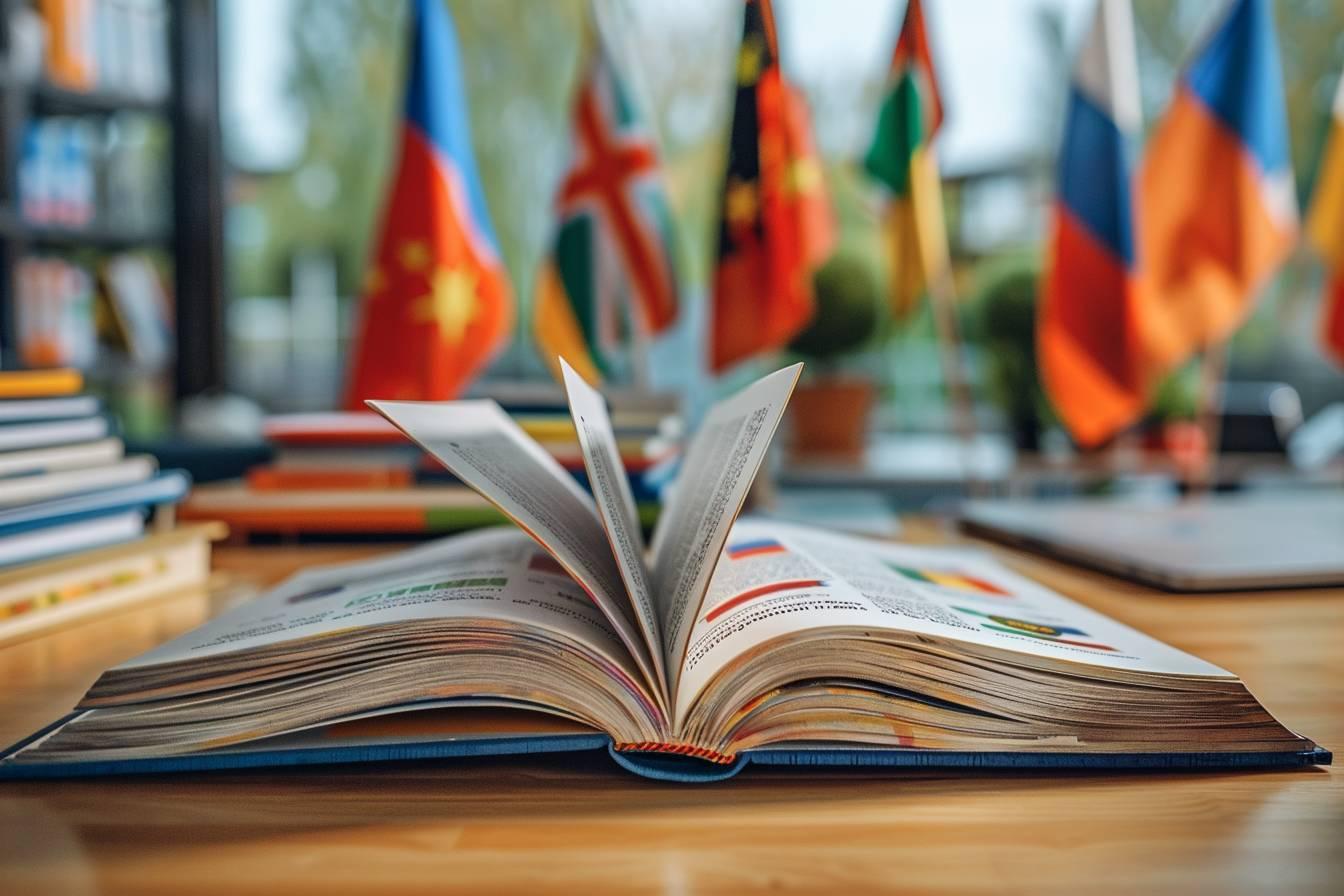An English glossary is an invaluable tool for anyone wishing to improve their command of Shakespeare’s language. Whether you’re a student, a professional or just an enthusiast, this language guide will help you learn. Let’s take a look at the many facets of this indispensable tool and its impact on international communication.
Understanding the usefulness of an English-French glossary
An English-French glossary plays a vital role in understanding and translating specialized texts. A glossary is a collection of technical terms and their definitions, making complex documents easier to read. These glossaries cover fields such as :
- healthcare
- economics
- legal
- Data protection
The main aim of such a tool is toharmonize terminology between different countries and cultures. This standardization avoids confusion due to language variations, and ensures clear communication between experts from all over the world.
Glossaries can be integrated at the end of a document or made available online for easy consultation. They generally offer concise, precise definitions of significant terms, making them invaluable resources for translators, researchers and even the general public.
Types and sources of English glossaries
There are many different types of English glossary, each with its own origins and specific uses. Here’s an overview of the main categories:
| Type of glossary | Source | Use |
|---|---|---|
| Official glossaries | Institutions (EU, UN) | Official documentation, international treaties |
| Specific glossaries | Organizations, companies | Internal projects, corporate communication |
| Multilingual glossaries | Specialized publishers | Translation, interpreting, comparative studies |
Official glossaries, published by recognized institutions such as the European Union and the United Nations, are authoritative in their respective fields. They serve as a reference for the drafting and translation of diplomatic and legal documents.
Specific glossaries, on the other hand, are created to meet the particular needs of an organization or project. They help ensure terminological consistency within a team or company, thereby facilitating internal and external communication.
Finally, multilingual glossaries offer equivalents in several languages, making them particularly useful for professionals working in an international context. These tools promote mutual understanding and collaboration between experts from different countries.

Features and practical use of glossaries
Modern English glossaries offer many features to facilitate their use and maximize their effectiveness. Here are some practical aspects to consider:
- Asterisk references: Some terms in the main text are marked with an asterisk, referring directly to their definition in the glossary.
- Regular updates: Glossaries are frequently updated to incorporate new terms and reflect language evolution.
- Accessible formats: Available online or downloadable in PDF format, glossaries can be adapted to suit individual user preferences.
- Advanced search: Digital versions often feature a quick search by keyword or category.
The effective use of an English glossary canimprove the accuracy of communication in a variety of professional contexts. For example, in the medical field, a specialized glossary will help practitioners to understand and correctly use English terminology when attending international conferences or reading scientific articles.
Similarly, students of international law will greatly benefit from an English-French legal glossary to help them grasp the subtleties of English-language legal texts. This tool will enable them to grasp important nuances and avoid potentially far-reaching misunderstandings.
Improve your English with glossaries
Beyond their professional usefulness, English glossaries are an excellent way toenrich your vocabulary and improve your command of the language. Here are a few strategies for making the most of these linguistic tools:
- Regular study: Set aside time each day to explore new terms.
- Contextualization: Look for examples of how words are used in authentic sentences or texts.
- Association of ideas: Create links between English terms and their French equivalents to facilitate memorization.
- Active practice: Incorporate new words into your written and oral productions.
Regular use of an English glossary not only broadens your lexicon, but also helps you understand the nuances and subtleties of the language. This approach is particularly beneficial for learners who wish to reach an advanced level in English.
By visiting specialized glossaries, you’ll become familiar with the professional jargon of your field of interest. This in-depth knowledge will open up new opportunities, whether for study abroad, an international career or simply to enrich your cultural exchanges.
Don’t forget that mastering an English glossary is an ongoing process. The language is constantly evolving, and new terms appear regularly. Stay curious and open to learning, and you’ll see your level of English improve significantly.

